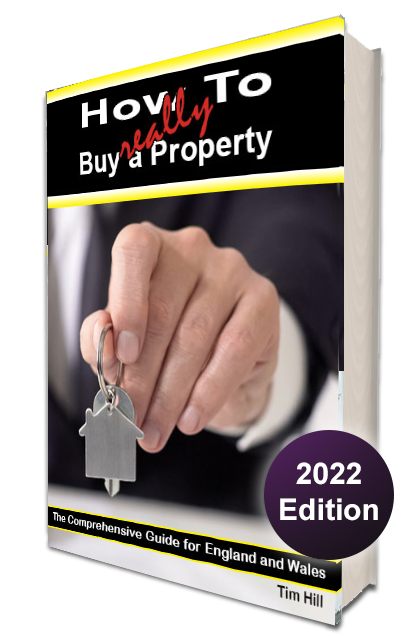Chapter 11: Sorting Out Your Mortgage
This is an extract from the ebook How to Really Buy a Property.
What's covered in this chapter
- Why you should arrange a mortgage before making an offer;
- Why you should talk to more than one financial adviser;
- How the same mortgage from the same bank can be cheaper in two different places;
- The difference between Agreements in Principle and Pre Arranged Mortgages;
- What could be in your history that will stop you getting a mortgage;
- Why the best mortgage deal may not be right for you;
- How choosing the wrong lender can stop you buying;
- Why you should avoid financial advisers who charge you a fee.
This is the chapter most buyers will want to ignore.
It is far easier to get on the Web or on the 'phone and start the exciting task of looking for your new home. It is also the way to loose the place you want, waste time and cause a lot of arguments. Here is what can happen if you don't have your finances in place.
| EVENT | RESULT | |
| You can't afford what you thought you could. | All the properties you have seen are irrelevant and you can't get the one you offered on. Everything you see on your new budget will pale in comparison. | |
| You can afford more than you thought you could. | Surprisingly common. You then decide you should see what you can get for the extra money wasting all the time from previous viewings. | |
| You can afford what you thought but you have nothing to prove it. | You loose the property to someone else who bids at the same time but can prove their finances. | |
| You can afford what you thought but have only had one quote which you got because someone insisted. | You suddenly see the right property but in order to move fast use the only quote you have got or rush around and only get a few more quotes. The panic means you miss the best deals on the market and pay hundreds of pounds more than you have to in mortgage payments. |
Anyone of these will loose your standing in the Estate Agents eyes making it harder to get the next deal agreed (see Viewing Properties and Making Offers).
You should see as many financial advis0rs as you see agents. After the first two or three you will soon get the hang of what they want to know and so the time it takes to get further quotes reduces exponentially. Classic information you will need to have at hand include your earnings, how much deposit you have, any debts or arrears, etc., etc. The reasons for spending so much time with these people are simple:
- When you come to offer they will be ready to tell you instantly what the best deal is at that time.
- Different financial advisers are given different special deals by different lenders at different times. If Bank X is the best deal with one adviser it may be an even better deal with another.
- Different financial advisers are paid different commissions on the various products which, although they shouldn't, can tend to make them push you gently towards products most profitable for them.
Agreements in Principle (AIPs) and Pre Arranged Mortgages (PAMs)
Agreements in Principle (AIP)
Most buyers are now aware of the Agreement in Principles (AIPs). These are however, exactly what they say they are. Briefly translated an AIP is the bank saying, "If what you have told us is true then we are prepared to lend you this much". The problem is that we often forget, or don't know it is important, that:- credit card debt which will be counted against us,
- we haven't been in the country much in the last few years so have little credit history,
- we had an argument with a loan company five years ago that went to court,
- we have moved home six times in the last three years and never got on the electoral register,
- we have never been in debt before and so have no credit history,
- we recently applied for other credit, even if it wasn't used,
- And so on, and so on.
Sometimes you forget, sometimes you don't even know they are relevant, but each of the above can change the way a bank looks at you.
Forgotten Debts - if you are paying off a credit card or a small loan on a monthly basis, in the rush to apply for a mortgage you may forget about it. But the lender will find out and usually remove that amount from the mortgage application. In the worst case scenario they could refuse to lend to you because they are no longer confident you have told them the whole truth.
Living Outside the Country - If you have been living abroad or come from abroad there may be nothing wrong with the way you ran your finances but the bank will want to check. In some countries this is a fast proceedure, in others it can take weeks to complete. Because a survey on the property you hope to buy is not booked until the credit check is completed the vendor can get the impression that nothing is happening and decide to look for another buyer.
Arguments with Loan Companies - These are not unusual and you may have gone to court and won the day. Many people do when the creditor puts unusual clauses in very small print within the contract. But to the lender you are now applying it means you may be trouble - rightly or wrongly - and they could take a negative view on your application for this reason alone.
and all the others, when you
purchase the ebook How to Really Buy a Property



